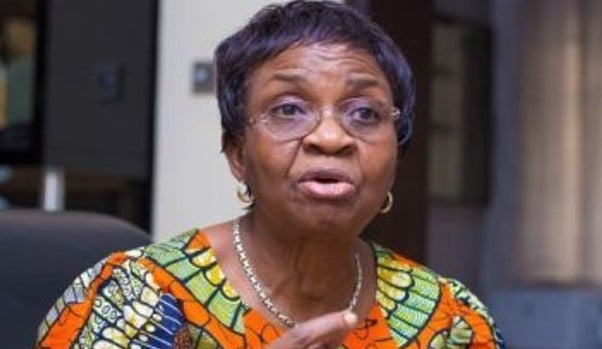News
NAFDAC cracks down on fake drugs, defends raids

The National Agency for Food and Drug Administration and Control (NAFDAC) has come out strongly to defend its sweeping crackdown on counterfeit and substandard drugs across Nigeria, brushing aside claims that the agency is unfairly targeting businesses.
The agency’s latest operations have seen the closure of thousands of shops and the seizure of large quantities of fake pharmaceuticals. While some critics accuse NAFDAC of disrupting trade and unfairly targeting non-drug sections of markets, the agency’s Director General, Mojisola Adeyeye, responded, saying:
“We are not disturbing trade; we are protecting lives”.
Speaking over the weekend in a video shared on NAFDAC’s official X handle, she stated “It is a security risk for our country. What the BBC showed will break your heart—young men who have been rendered useless.”
Her words came after the agency’s major crackdown led to the sealing of over 11,000 shops and the arrest of 40 individuals involved in the sale of fake and unregistered drugs. The move, according to Adeyeye, has been in the works for over a year and was carried out as a covert operation.
The raids began on February 10, targeting three major drug distribution hubs: Idumota Open Drug Market in Lagos, Ariaria Drug Market in Aba, and the Bridge Market in Onitsha, Anambra State. These three markets alone account for over 80 percent of Nigeria’s pharmaceutical distribution.
“We are winding down our operations in Aba because we have almost completed the evacuation,” Adeyeye explained. “Our next phase is to inspect shops individually to identify those operating legally and those who are not registered.”
The scale of the operation is staggering. In Onitsha, NAFDAC has closed more than 4,000 shops, while Lagos saw 3,027 closures and Aba another 4,000. Yet, according to the agency, their work in Onitsha is only 20 percent complete.
One key issue, Adeyeye noted, is that many traders operating in these markets are not registered with the Pharmaceutical Council of Nigeria (PCN). Ensuring compliance and registration, she said, is essential to cleaning up the pharmaceutical supply chain and protecting consumers from dangerous, falsified medications.
The agency insists its priority remains the health and safety of Nigerians. “There is no politics in what we are doing,” Adeyeye affirmed. “We are safeguarding lives.”
Join the conversation
Support Ripples Nigeria, hold up solutions journalism
Balanced, fearless journalism driven by data comes at huge financial costs.
As a media platform, we hold leadership accountable and will not trade the right to press freedom and free speech for a piece of cake.
If you like what we do, and are ready to uphold solutions journalism, kindly donate to the Ripples Nigeria cause.
Your support would help to ensure that citizens and institutions continue to have free access to credible and reliable information for societal development.




























